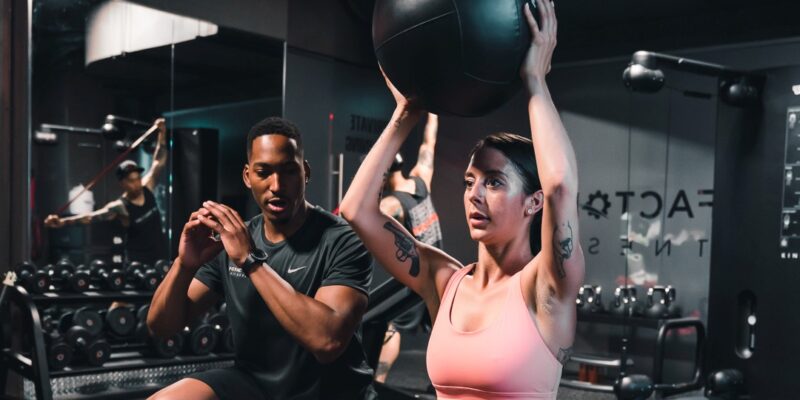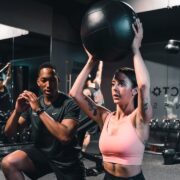
Finding the right personal fitness trainer Singapore can be one of the most valuable decisions you make for your health and fitness journey. With hundreds of trainers offering services across gyms, studios, and even in private home settings, it is not just about picking the nearest trainer. It is about selecting someone who understands your body, your goals, and your lifestyle. For many people in Singapore, engaging the right trainer becomes the key to long-term consistency, measurable results, and avoiding the common pitfalls of motivation loss or injury.
Personal trainers in Singapore are not all alike. Some focus on weight management, while others specialise in strength development, rehabilitation, or senior fitness. Choosing without a clear framework often leads to mismatched expectations, wasted money, and slower progress. The following ten criteria will help you evaluate trainers systematically, ensuring that your investment in health pays off in results.
1. Professional Certifications and Qualifications
A strong foundation of knowledge is the minimum requirement for any trainer you consider. Certifications are not just pieces of paper. They reflect a structured education in exercise science, anatomy, physiology, and safe coaching practices.
In Singapore, reputable trainers often hold qualifications such as:
-
American Council on Exercise (ACE) certification
-
National Academy of Sports Medicine (NASM)
-
Certified Strength and Conditioning Specialist (CSCS)
-
Local certifications recognised by the Singapore Sports Council
Verifying your trainer’s qualifications is essential because you need assurance that they understand injury prevention, correct exercise form, and progressive programme design. This reduces your risk of harm and ensures every session contributes positively.
2. Experience and Specialisation
A fresh graduate with a certification might have theoretical knowledge, but experience sharpens practical skills. The right trainer should not only have worked with a variety of clients but should also specialise in your area of need.
For example:
-
If you are recovering from an injury, you need someone with rehabilitation experience.
-
For fat loss, the trainer should have a track record of clients who achieved measurable weight reduction.
-
Athletes may need strength and performance-oriented trainers.
Always ask potential trainers about past client case studies and whether they have worked with people who had goals similar to yours.
3. Training Style and Philosophy
Every trainer has a personal approach. Some are motivational cheerleaders, others prefer quiet encouragement. Some use structured programmes based on strength progression, while others prioritise functional training or HIIT sessions.
What matters is alignment with your personality and goals. If you prefer a disciplined and regimented approach, a highly structured trainer may be suitable. If you thrive on creativity and variation, a trainer who introduces new methods regularly will keep you engaged. Compatibility in training style often determines how long you stay consistent.
4. Communication Skills and Rapport
Technical knowledge without good communication often leads to frustration. Trainers must be able to explain exercise form clearly, give timely feedback, and adapt their language to your level of understanding. Rapport is equally important. You will likely spend hours each week with this person, and mutual trust and respect go a long way.
A trainer who listens to your concerns and modifies sessions when necessary ensures that you feel safe and supported. Many Singaporeans stick with their trainers for years, not only because of results but also because of the personal bond developed.
5. Goal Setting and Progress Tracking
A good trainer does not just ask, “What do you want to achieve?” and leave it at that. They guide you to set specific, measurable, achievable, realistic, and time-bound (SMART) goals.
They should also implement progress tracking methods such as:
-
Body composition analysis
-
Performance tests (strength, endurance, flexibility)
-
Lifestyle and nutrition logs
Regular check-ins and tangible metrics ensure you stay motivated and see progress, even when changes in the mirror are slow.
6. Training Venue and Accessibility
Singapore offers a wide range of training environments, from large chain gyms to boutique fitness studios and private condo gyms. Some trainers even provide outdoor sessions at parks or beaches.
Key factors to consider:
-
Location convenience (near home, office, or MRT)
-
Equipment availability
-
Privacy levels (some prefer quiet boutique studios over crowded gyms)
-
Cost differences between venues
Your choice of venue can directly influence consistency. For example, a trainer based near your workplace may keep you on track better than one located far from your daily routine.
7. Scheduling Flexibility
Many working professionals in Singapore struggle with packed schedules. A trainer who cannot accommodate your working hours will eventually cause frustration.
Discuss upfront:
-
Availability during early mornings, late evenings, or weekends
-
Cancellation and rescheduling policies
-
Session duration flexibility (30, 45, or 60 minutes)
The right trainer balances structure with flexibility, ensuring that your life commitments do not derail your fitness goals.
8. Transparency in Pricing and Packages
Training costs in Singapore can vary significantly, often ranging from SGD 70 to over SGD 150 per session depending on trainer experience, location, and package structure.
Always look for clarity in:
-
Per-session rates versus package deals
-
Expiry dates on purchased sessions
-
Additional fees for travel or venue entry
-
Refund policies
A transparent trainer explains the value you are receiving, whether it is customised programming, nutrition support, or progress reports. Remember, the cheapest option is not always the best, but you should never feel misled about costs.
9. Reviews, Testimonials and Social Proof
Word of mouth remains powerful. Testimonials from real clients often reveal what a trainer is like in practice. Look for:
-
Verified Google or Facebook reviews
-
Case studies with before-and-after data
-
Client feedback videos or stories
Beyond glowing testimonials, pay attention to how trainers handle constructive criticism. A professional response to a less-than-perfect review often signals reliability and integrity.
10. Long-Term Sustainability and Support
True fitness is not about quick results but about sustainable progress. A skilled trainer should help you build habits that continue even when you train less frequently.
Signs of long-term focus include:
-
Education on exercise form so you can train independently
-
Guidance on nutrition and recovery strategies
-
Progression plans that prevent plateaus and burnout
-
Encouragement to set new goals after achieving initial ones
When a trainer empowers you to become self-sufficient, you know they have your best interests at heart.
Why Choosing the Right Trainer Matters in Singapore
Singaporeans often juggle demanding careers, family responsibilities, and busy lifestyles. Without proper guidance, many lose motivation after a few weeks or risk injuries through poor technique. A qualified and compatible trainer ensures your sessions are safe, effective, and rewarding.
For those who value structured and professional guidance, True Fitness Singapore has established itself as a recognised hub where clients can access trainers who meet industry standards while offering diverse programmes tailored to different needs.
FAQs About Personal Trainers in Singapore
Q. How many sessions per week are ideal when working with a trainer?
A. It depends on your goals and schedule. For fat loss or major transformations, three to four sessions weekly often produce optimal results. For general fitness and maintenance, one to two sessions can be sufficient if paired with independent workouts.
Q. Can I request customised nutrition guidance along with training?
A. Many trainers in Singapore provide basic nutrition advice as part of their service. However, only those with additional nutrition certification can offer detailed diet plans. You should always clarify whether the trainer’s role includes meal planning or just general advice.
Q. Are there personal trainers for children or teenagers in Singapore?
A. Yes, some trainers specialise in youth fitness. These programmes often focus on building confidence, coordination, and safe exercise habits rather than heavy training. Parents should ensure trainers are certified and experienced in working with young individuals.
Q. How long does it typically take to see results with a trainer?
A. While some people notice changes in as little as four weeks, most sustainable transformations take three to six months. Results depend on training frequency, nutrition, sleep, stress levels, and adherence to the programme outside training sessions.
Q. Can trainers work with people who have medical conditions?
A. Many trainers are experienced in adapting programmes for clients with diabetes, hypertension, or other conditions. However, medical clearance from a doctor is often required, and specialised trainers with rehab or clinical exercise backgrounds are best suited for such cases.
Q. Is it common for trainers to offer group or buddy sessions in Singapore?
A. Yes, buddy training or small group sessions are popular for cost-sharing and motivation. Trainers often design programmes that allow two or more clients to work together while still receiving individual attention.










